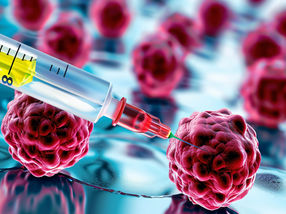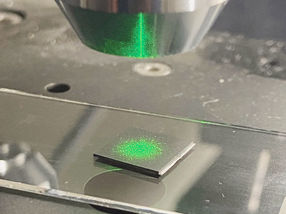Novexel Reports Positive Phase II Trial Results with NXL103 in Adult Patients with Community Acquired Pneumonia
Novexel, a speciality pharmaceutical company focused on the discovery and development of novel antibiotics designed to overcome the significant global problem of microbial resistance, announced positive results from its Phase II clinical trial evaluating NXL103 in the treatment of community acquired pneumonia (CAP). NXL103 is a novel oral streptogramin antibiotic that has potent in vitro activity against certain Gram positive bacteria including methicillin resistant Staphylococcus aureus (MRSA) as well as the important respiratory pathogens including penicillin, macrolide and quinolone resistant strains.
The NXL103 Phase II study was a double-blind, multinational, randomized, comparative study that evaluated this novel oral antibacterial as a treatment for mild to moderate CAP. The study recruited 300 adult patients in 9 countries in both the Northern and Southern hemispheres. Patients were randomised (1:1:1) to three treatment arms: 500mg of NXL103 twice a day, 600mg NXL103 twice a day or 1,000 mg of amoxicillin three times a day for 7 days. The key endpoints of the study were the clinical outcome in the clinically evaluable population at the early follow-up visit (7 to 14 days post-therapy) and safety. In this study, both doses of NXL103 were effective, with clinical response rates similar to those seen in the amoxicillin group. For the primary efficacy analysis, response rates were 91.4% in the 500mg NXL103 group; 94.7% in the 600mg NXL103 group; and 88.5% in the amoxicillin group. NXL103 was generally well tolerated with the most frequent adverse events related to gastrointestinal intolerance. There were no serious drug-related adverse events reported in the study.
The complete results from this Phase II trial will be published in the first half of 2009.
Most read news
Other news from the department research and development

Get the life science industry in your inbox
By submitting this form you agree that LUMITOS AG will send you the newsletter(s) selected above by email. Your data will not be passed on to third parties. Your data will be stored and processed in accordance with our data protection regulations. LUMITOS may contact you by email for the purpose of advertising or market and opinion surveys. You can revoke your consent at any time without giving reasons to LUMITOS AG, Ernst-Augustin-Str. 2, 12489 Berlin, Germany or by e-mail at revoke@lumitos.com with effect for the future. In addition, each email contains a link to unsubscribe from the corresponding newsletter.























































